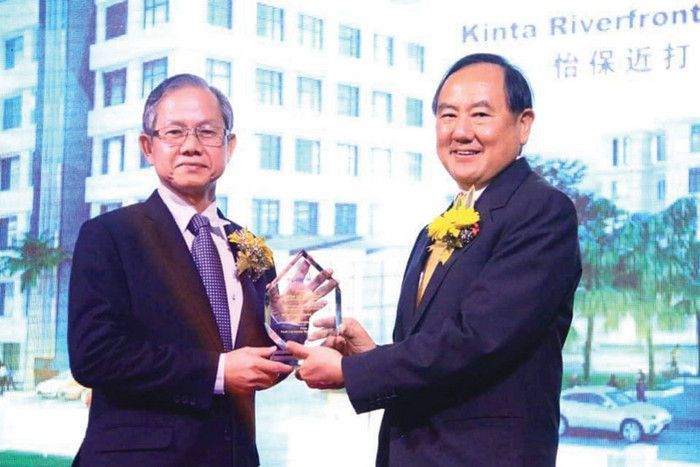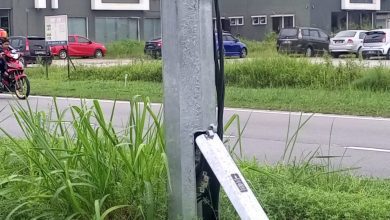

Perak Community Specialist Hospital (PCSH) held a dinner recently to raise funds for expansion plans which include the construction of a new 6-storey block, a new Imaging Centre, a new Catheterization Lab and purchase of new equipment – all of which would cost around RM65 million.
Since July till September this year, several organisations and business houses have carried out fundraising projects and successfully raised about RM400,000 towards the building project.
Dr Lee Boon Chye remarked at the dinner that as a not-for-profit hospital, PCSH played a major role in helping to lighten the government’s burden of dealing with over-crowded government hospitals.
He said that due to the sluggish economy and spiralling costs of living, many people especially those from the lower income group, were flocking to government hospitals which were unable to cope with such increasing demands nor could they provide fast and effective services like private hospitals. This is why the Health Ministry welcomes and fully supports not-for-profit hospitals like PCSH whose mission is to provide affordable yet quality healthcare to the sick and needy.
The Deputy Health Minister said PCSH started out as a humble maternity hospital giving free maternity services to Chinese families of the tin-mining community in Perak. In 1923, The Perak Chinese Maternity Association was established and in 1939, the hospital shifted to its present locality.


During the Japanese Occupation, the hospital’s operations were stopped for five years. In 1969, when the government withdrew its funding to the hospital, PCSH was unable to provide free healthcare services to the community. Despite the odds, the hospital continued to grow and flourish, expanding its services to cover not only maternity but also a diversity of medical disciplines when new consultants were added. The hospital then changed its name to the present Perak Community Specialist Hospital.
Those present at the dinner included Dato’ Lee Hau Hian, President of The Perak Chinese Maternity Hospital; Dato’ Dr Y.C. Lee, PCSH’s Medical Superintendent; Dato’ Ooi Foh Sing, President of the Ipoh Chinese Chin Woo Athletic Association; Mr Woo Chee Wai, Fundraising Dinner Organizing Chairman; Mr Gary Cheah, President of Lions Club Ipoh Mandarin; and Mr David Low, President of Lions Club Ipoh Tin Valley.
Earlier, President of The Perak Chinese Maternity Association Dato’ Lee Hau Hian said that PCSH had always stayed true to its mission as a not-for-profit hospital, providing affordable yet quality healthcare especially to the sick and needy from lower income groups. PCSH became a very essential health provider alternative to the community who could not afford to be on the long waiting lists at government hospitals.
PCSH which has a history dating back 114 years was established by a group of philanthropists, doctors and caring members of the community. From its humble beginnings as a 6-bedded hospital rendering maternity services to Chinese families in the tin-mining community in Perak, it has grown to become a multi-disciplinary specialist hospital.
Dato’ Lee said whether or not PCSH can continue to be a relevant part of the community depends solely on the continued support of the community. As such he appealed to the people at large to donate generously and support the hospital’s “Brick For Brick” campaign for the construction of its new building and facilities, to fulfil its dream of providing quality, effective but most of all affordable healthcare to the community.
In an earlier speech Dato’ Ooi Foh Sing, President of the Ipoh Chinese Chin Woo Athletic Association, said the poor and needy would usually opt for treatment at government hospitals once they encounter any health issues, thereby contributing to the overcrowding of such institutions. This is where not-for-profit hospitals like PCSH comes in like a beacon of light for those amongst the lower income groups, giving them the hope of accessibility to alternative affordable, effective and quality healthcare.
He added that any profit derived by the hospital is re-channelled into the purchase of new equipment or for the improvement of existing facilities provided by the hospital to the community.


